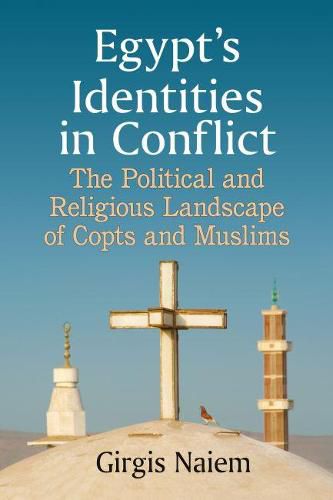Readings Newsletter
Become a Readings Member to make your shopping experience even easier.
Sign in or sign up for free!
You’re not far away from qualifying for FREE standard shipping within Australia
You’ve qualified for FREE standard shipping within Australia
The cart is loading…






This title is printed to order. This book may have been self-published. If so, we cannot guarantee the quality of the content. In the main most books will have gone through the editing process however some may not. We therefore suggest that you be aware of this before ordering this book. If in doubt check either the author or publisher’s details as we are unable to accept any returns unless they are faulty. Please contact us if you have any questions.
Egypt’s lack of a common national identity is the basis for much of its internal conflict–Coptic Christians have been particularly affected. Once major contributors to Christian civilisation, their influence ended with the 5th century Council of Chalcedon and they endured persecution. With the 7th century Arabization of Egypt, Copts were given dhimma or protected persons status. The 1919 revolution granted them greater political participation but the 1952 revolution ended liberal democracy and established a military regime that championed Arab identity. Secular Egyptians rebelled against the Mubarak regime in 2011, yet his successor was the Muslim Brotherhood’s Mohamed Morsi, Egypt’s first Islamist president. In yet another fight over national identity, secular factions removed Morsi in 2013–the Copts suffered the brunt of violence.
$9.00 standard shipping within Australia
FREE standard shipping within Australia for orders over $100.00
Express & International shipping calculated at checkout
This title is printed to order. This book may have been self-published. If so, we cannot guarantee the quality of the content. In the main most books will have gone through the editing process however some may not. We therefore suggest that you be aware of this before ordering this book. If in doubt check either the author or publisher’s details as we are unable to accept any returns unless they are faulty. Please contact us if you have any questions.
Egypt’s lack of a common national identity is the basis for much of its internal conflict–Coptic Christians have been particularly affected. Once major contributors to Christian civilisation, their influence ended with the 5th century Council of Chalcedon and they endured persecution. With the 7th century Arabization of Egypt, Copts were given dhimma or protected persons status. The 1919 revolution granted them greater political participation but the 1952 revolution ended liberal democracy and established a military regime that championed Arab identity. Secular Egyptians rebelled against the Mubarak regime in 2011, yet his successor was the Muslim Brotherhood’s Mohamed Morsi, Egypt’s first Islamist president. In yet another fight over national identity, secular factions removed Morsi in 2013–the Copts suffered the brunt of violence.